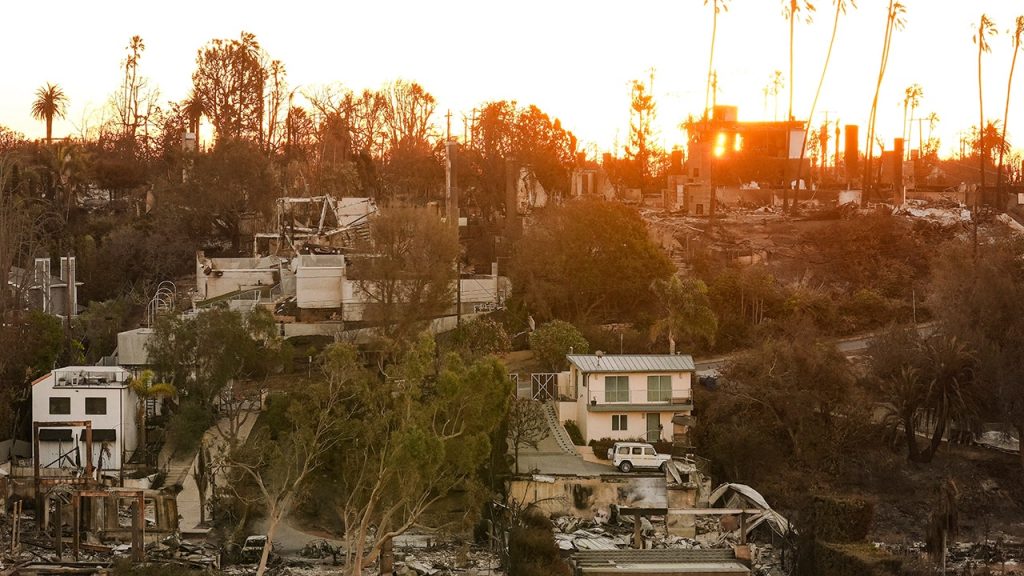The 2025 Genesis Invitational, a prominent PGA Tour event traditionally held at the Riviera Country Club in Pacific Palisades, California, has been relocated due to the devastating impact of the recent Los Angeles wildfires. While the Riviera Country Club itself was spared from direct damage, its location within the mandatory evacuation zone necessitated the tournament’s relocation. This decision prioritizes the safety and well-being of all involved, acknowledging the ongoing emergency response efforts and the significant impact on the community. The tournament, a $20 million signature event hosted by golfing legend Tiger Woods, retains its original schedule, commencing with preliminary events on February 10th and the main tournament starting on February 13th. The PGA Tour, in collaboration with Genesis, The Riviera Country Club, and TGR Live, is working diligently to finalize an alternate venue and will announce the updated location in the coming days.
The relocation underscores the severity of the wildfires that ravaged the Los Angeles area, claiming over two dozen lives and destroying more than 12,000 structures. The fires swept through communities, forcing widespread evacuations and disrupting lives. The Pacific Palisades, home to the Riviera Country Club, was among the areas significantly affected by the disaster. The PGA Tour’s decision reflects a commitment to supporting the affected communities and avoiding any further strain on resources during the ongoing recovery efforts. The organization expressed gratitude for the tireless efforts of first responders and all those working to contain the wildfires and assist those impacted.
While the Genesis Invitational is a significant event on the PGA Tour calendar, its relocation pales in comparison to the human cost of the wildfires. The focus remains squarely on supporting the community and ensuring the safety of residents. Tiger Woods, the tournament host, echoed this sentiment, stating that the immediate priority is aiding those affected by the disaster rather than focusing on the tournament itself. He emphasized the importance of addressing the needs of those who have lost homes and livelihoods, reflecting a shared concern for the well-being of the community.
The decision to relocate the Genesis Invitational demonstrates the PGA Tour’s commitment to responsible action in the face of extraordinary circumstances. By moving the tournament, the organization avoids placing additional burdens on a region already grappling with a major disaster. This decision also allows local resources and infrastructure to be dedicated to the ongoing recovery efforts. The PGA Tour’s statement emphasizes collaboration with all stakeholders in making this decision, highlighting a unified approach to addressing the challenges posed by the wildfires. The prompt communication regarding the relocation and the commitment to providing timely updates demonstrate a proactive approach to minimizing disruption for players, sponsors, and fans.
The wildfires in Southern California serve as a stark reminder of the devastating impact of natural disasters. The loss of life, homes, and businesses represents a profound tragedy for the affected communities. The golf course clubhouse that succumbed to the flames symbolizes the widespread destruction caused by the fires. While the loss of the clubhouse is significant for the local golfing community, it underscores the broader impact of the wildfires on the region’s infrastructure and recreational facilities. The resilience and determination to rebuild are evident in the commitment to come back stronger, reflecting the spirit of the community in the face of adversity.
The relocation of the Genesis Invitational highlights the interconnectedness of sporting events and the communities in which they are held. While professional golf tournaments bring economic benefits and entertainment value, their success is ultimately dependent on the well-being of the host community. In the wake of a natural disaster like the Los Angeles wildfires, the focus shifts from the sporting event itself to the more pressing needs of the community. The PGA Tour’s decision reflects a recognition of this reality and a commitment to supporting the recovery efforts in any way possible. The relocation of the tournament is a testament to the importance of prioritizing human needs over sporting events, demonstrating that even in the world of professional sports, compassion and community support take precedence in times of crisis.










